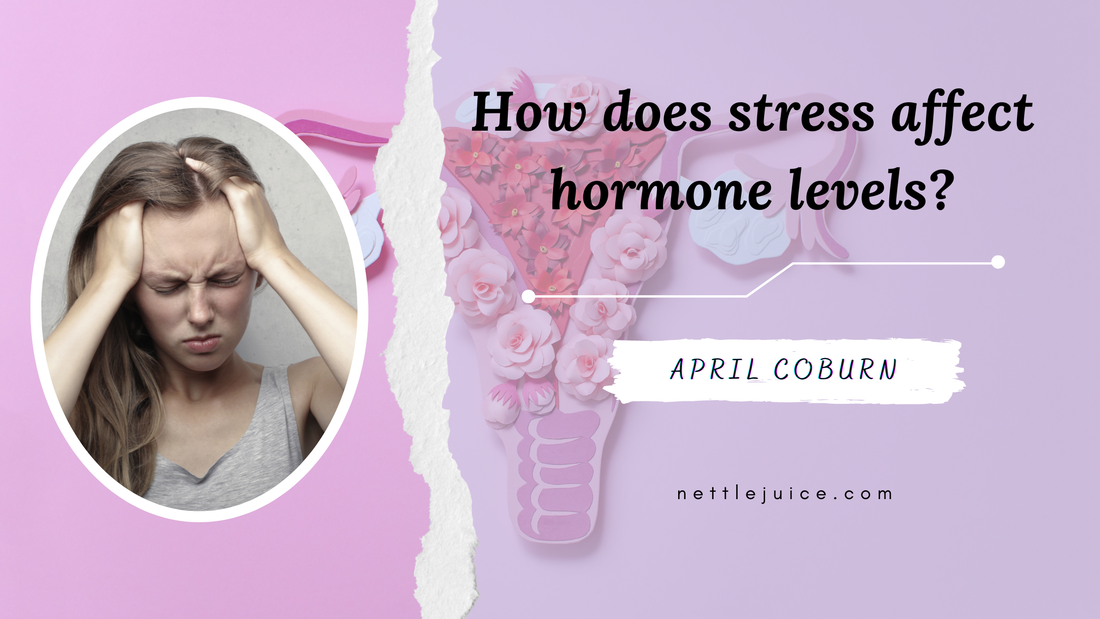|
The female reproductive cycle involves a beautiful orchestration of hormones that rise and fall throughout our monthly cycles. This hormone cycle, when it is functioning well, allows our bodies to mature healthy follicles, release them from our ovaries, prepare the uterus for implantation and possible pregnancy, or shed its lining in preparation for another cycle. In addition, healthy reproductive hormone levels have other benefits for us, including an increased sense of well-being, healthy blood sugar levels, improved sleep, and more. When our hormone levels are good, we experience regular cycles and minimal period discomfort and symptoms. When hormone levels go awry, however, things don’t work as smoothly as they should. The results can be irregular periods, increased pain, too much bleeding (or too little), and eventually, chronic reproductive conditions can develop. And if we are getting close to menopause, the transition can be much more difficult. Oftentimes, folks know their hormone levels are wonky. They may have had levels tested or they may just “feel” that things are off. Sometimes I get asked about herbs to help with this. Folks will ask, “what can I take to balance my hormones?” or “what herbs will increase progesterone?”. However, as clinical herbalists, we often do not use herbs with the intention of having a direct effect on the endocrine system. Rather, we use herbs (along with diet and lifestyle strategies) to support the body into a more healthy and balanced state so that healthy hormone levels are more likely to result. There are many possible underlying causes of dysregulated hormone levels. But I would like to talk about one of the big ones here, and that is stress. The Stress Response When we are under stress, a chain reaction that begins in our brain and ends with our adrenals releasing cortisol is triggered. This moves us into the sympathetic mode of our autonomic nervous system. This is also called the fight or flight mode because it gives us the ability to more effectively defend ourselves or escape from danger. In the short term, the stress response is a good thing. It is a survival strategy that helps to keep us alive. However, if we are in the sympathetic mode too much, or all the time, we start to experience negative consequences. Our sleep can become disturbed, we can have digestive issues, we become more anxious and irritable… Eventually, we can start to develop chronic conditions. But being in fight or flight too much will also affect reproductive hormones as well. How does stress affect reproductive hormones The stress response is meant to be a short-term survival mode. As such, it moves function toward areas of the body we need for immediate survival, such as the muscles, senses, heart, and lungs. Things that are not required for protecting ourselves or escaping danger, digestion for example, are not a priority, and neither are sex and reproduction. Again, this is ok if we are in sympathetic mode short-term, but oftentimes we are in this mode much more than is healthy. The stress response is triggered whether the danger is real or not. If our lives are in danger now and we can do something about it, the stress response is wonderful. However, if we are stressed by the news, finances, or work the stress response becomes less helpful. If we cannot use it to do something, get out of danger, and then return to rest and digest, then we stay in the sympathetic mode longer than is sustainable. How does long-term stress affect reproductive hormones? Let’s take a look. Chronically high cortisol levels alter the release of GnRH in the hypothalamus, as well as FSH and LH from the pituitary. These are the hormones that stimulate ovulation, and mature follicles in the ovaries. In addition, high levels of cortisol block progesterone receptors, which affects not only reproductive function, but sleep, inflammation, serotonin levels, immune function, and brain health. Over time, we begin to see things like suppressed ovulation, irregular cycles, a decline in libido, worsening sleep, increased menstrual pain, missed periods, and decreased fertility. Eventually, we can see the beginnings of chronic conditions developing. You can see now how important it is to get a handle on stress levels when addressing reproductive health. But addressing stress levels requires conscious effort. Our stressors don’t just go away. Yes, herbs can help us support our nervous system and build resilience. We can use nervous system tonics and adaptogens to increase our capacity to handle the stressors in our lives. But we need more than herbs here. We need healthy boundaries, we need quality sleep, and we need to eat right, exercise, and connect with community. When we combine stress reduction and herbs for resilience with addressing other root causes of hormonal imbalance we often start to see levels normalizing and symptoms improving. It really is about the whole picture. Read about my favorite herbs for building resilience here.
0 Comments
|
AuthorApril Coburn, herbalist and founder of Nettlejuice. Archives
July 2023
Categories |
Search by typing & pressing enter




 RSS Feed
RSS Feed
